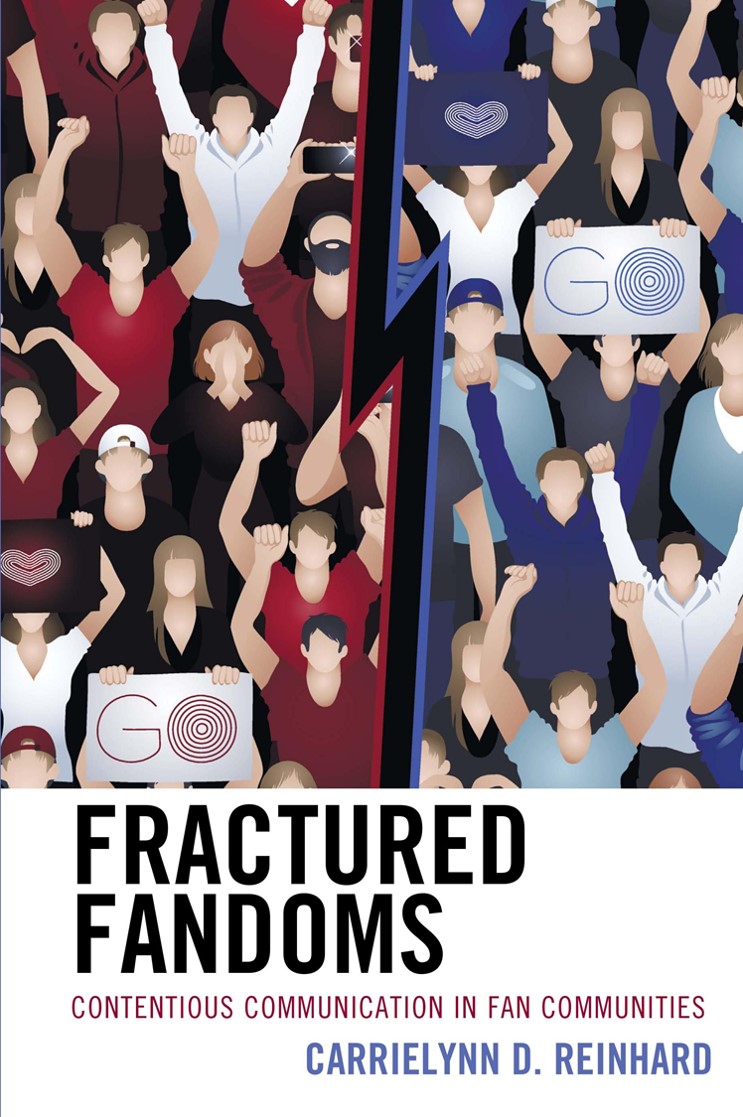The title of this blog post could well have been “______ Tensions in Geekdom: Why? Just, Why?”, but I think that would’ve messed with the URL and broken the WWW. Honestly, tho, “sexist” could just as well be “racist” or “ageist” or “homophobic” or any other “-ism” relevant in our divided and catalogued world. It could have also been “stupid” or “silly” or “pointless,” because I think that is what this whole topic boils down to. Not that the issue of a fractured fandom, of how these “-isms” are hurting people, is stupid — far from it! No, what is stupid, silly, and pointless is the idea that these fractures exist — that in an area of life dedicated to those things we love, so much hate is overtaking and destroying it.
Being a fan is about loving something so much that it goes beyond the basic consumption of use and move on. Being a fan means sticking around with something, delving into its depths to understand its secrets, demonstrating one’s affection through speech and activity, and spreading that love so as to find others who love it just as much. A person does not take the time and spend the money on activities unless those activities mean something to him or her — and such activities only mean something out of love, not out of hate. Hate can motivate us for short bursts of action, but love sustains us through thick and thin, ups and downs, prequels and sequels.
Fandom = Love.
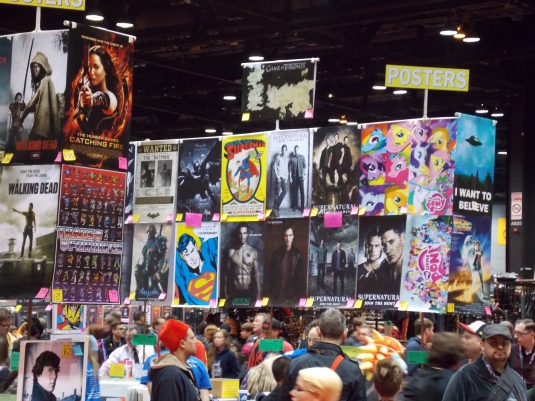
So why do fans sometimes really seem to hate each other?
We can see the disagreements in discussions of a continual lack of prominent women in the new Star Wars cast. We can see the negativity in the arguments of whether or not a rape scene in Game of Thrones was consensual. We can see the displeasure over the casting choice of Michael B. Jordan for Johnny Storm in the upcoming Fantastic Four reboot. We can see the mantra of “love and tolerance” be disregarded for “hate and cruelty” in the actions of My Little Pony fans. We can see the ongoing lack of proper responses to the perception of the “fake geek girl” and the issue of needing harassment policies at conventions. We can see the problems of “brocoders” and “brogrammers” actively shutting women out of lucrative industries.
Over and over again, we can see these problems. Of people being trolled and receiving threats of physical harm — even death — for expressing their opinion. Of people attacking one another for having a difference of opinion, or belief, or behavior. Of people being turned away or forced out of fandoms and industries because of the negativity.
This is not what fandom is. For years we scholars have been celebrating fandom. We have researched and written about these positive activities of fans as a way to demonstrate the power of the media consumer to act with or against the seemingly overwhelming power of the media producers to decide what we think and feel. We celebrated fans’ alternative readings of texts, their forming of communities online and offline, their creation of works that provide their own interpretation of the text, their ability to organize as activists to create change, and their growing influence over the media producers we scholars had feared were controlling them. We scholars, as fans ourselves, wanted to show that being a fan was okay — wanted to change the public discourse and perception on fandom away from the idea of fans as social outcasts and misfits. And given the rise of pop culture — given the importance of fans in a niche media market — given the financial power of fans — that perception has been eroded.
Geek = Chic.
But in so celebrating the fan, we must not overlook the problems of fandom. The increasing fractured nature of fandom, in general, and all the specific fandoms. We must turn our scholarly attention to describing these fractures, to understanding what is happening, to explaining why it is happening. To look at the way the “-isms” are dividing what should be friends into enemies. To look at the psychological, sociological, cultural, economic, and political reasons for and repercussions of such fractures. We cannot blindly celebrate “being a fan” when so many fans are being flamed, trolled, bullied, harassed, threatened, and worse.
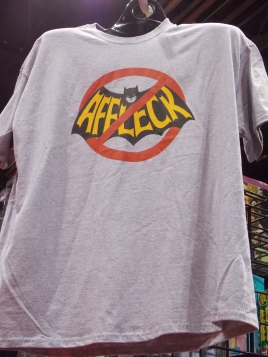
So, again I ask, why do fans sometimes really seem to hate each other?
Earlier this month, I presented a paper on the fractured fandom of My Little Pony: Friendship is Magic at the national Popular Culture Association conference in Chicago. The paper was part of a panel on the fans and their reception of the series, and it followed two great presentations that sought to help us understand the fascinating cross-gendered nature of the fandom: the bronies, and how their being fans of a “girlie cartoon” indicates something important about the current crisis of masculinity in the United States. I followed these positive notes with my own work that seems to be indicating just how poorly the fans are receiving the bronies; how the audience for the series mirrors the public discourse and unease about grown men engaging and loving such a media text.
But the lively conversation that followed our presentations was not as negative toward my idea as I had feared. Indeed, in the previous day, the same group of people heard a wonderful presentation on the phenomenon of the “fake geek girl,” and thus they were primed to have this conversation about the fractured as well as cross-gendered nature of the fandom. In the conversation that followed, one interesting idea was discussed for why such fracturing occurs. A woman suggested that the bronies were bringing into the MLP:FIM fandom expectations and behaviors that they practice in other fandoms, ones that are traditionally dominated by men. The idea being that in these more masculine fandoms, the behavior of in-fighting is to be expected, and this behavior is normalized. Thus, the bronies would expect to be engaging in the same type of behavior in a feminine fandom — perhaps as a way to make themselves feel comfortable within such a fandom, or perhaps, as it was suggested, as a way to colonize it and make it theirs.
As far as explanations go, I think there could be some truth in it. I see it happen often with my partner when he is engaging with his friends, his community of film fans, that the men will often joke and josh with one another. He warned me that if I wanted to become a part of such a community, that I would need to be ready for such taunting, teasing, and “good-natured ribbing.” I am sure we can think about many times we have seen men engaging with one another in a friendly way with their homosocial bonding involving such teasing, and there is research that will discuss how such acts are deemed as socially and culturally acceptable ways for men to bond, as a “true man” trying to live up to hegemonic masculine ideals cannot be emotive the way a woman can. Add to that the trait of competition often seen as a part of this hegemonic masculine ideal, and we could easily see how such behaviors that seem to be designed to push people apart are really a way to bring men together.
Thus, men crossing a gendered boundary into a fandom that is not explicitly meant for them could be bringing in these expectations and behaviors of “good-natured ribbing” not because they are mean people, but because they believe such to be the normal way of expressing affection.
But I think we can find more explanations.
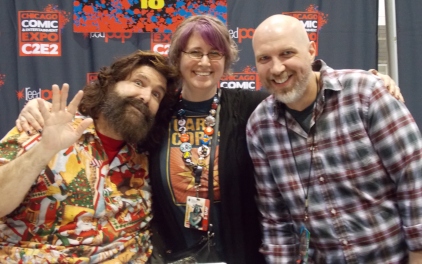
Later in April, my partner (who writes on matters of pop culture and masculinity at his blog) and I attended C2E2 in Chicago for our third straight year. As with the previous times, we had a blast. Being big nerds, geeks, and fans of many media and pop cultural texts, there was a lot for us to do. From meeting former professional wrestler Mick Foley to seeing some truly amazing cosplay, we were happy to spend the time crammed into small spaces with other lovers of fandom like us.
One of the panels we attended was part of a series at the convention intended to bring a focus on these issues of fractured fandom and how to develop more inclusive fandoms. They even offered a “Diversity in Nerdery C2E2 Raffle” to encourage attendance to the panels. But, for the one we attended, I do not think there was a need for such an incentive; the room was packed, with men and women of all ages and ethnicities. At this panel, “Glass Ceilings, Missing Stairs, & Gatekeepers: Geeks Still Deal with Sexism,” many stories of and reasons for such sexism occurring were discussed by the panelists, along with methods for dealing with this ongoing problem. In regards to the latter, methods for dealing with the problem ranged from making visible the problem on a wider scale to promoting more women producers of content to calling out the abusers to empowering more allies, i.e. men, to speak out against such abusers and abuses.
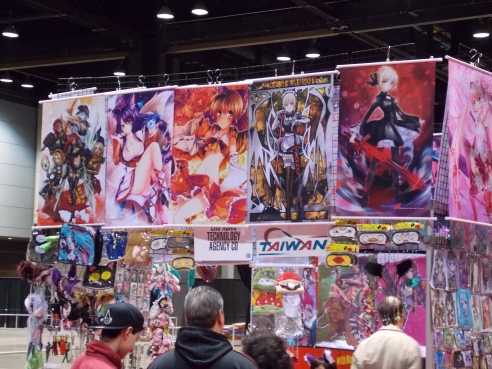
Early in the panel, my partner and I had a thought that became one of the last ideas discussed during the Q&A session. As the panelists discussed early on in the session, in the United States society and mainstream culture, there has been, and to an extent remains, the idea that pop cultural fandom and geekdom are unfeminine because these spheres have for so long been dominated by men. The argument is that the more feminine a woman is, then the less of a true geek she is perceived to be (i.e. creating the perception of the fake geek girl). Because such fandom and geekdom is perceived to a “guy thing,” women may feel the need to diminish their femininity to fit in and to not get harassed for participating.
However, my partner and I had a different thought at the time that was basically validated by the end of the panel. Instead of seeing such fandom and geekdom as a masculine sphere, we believe that it has been and is seen by general society and mainstream culture as a feminine sphere. The men who participate in such activity are not seen as representing this hegemonic masculine idea, either physically or mentally, and are thus positioned as outside of masculinity. Because in our country we view gender as a binary, whatever is outside of masculinity would be positioned as feminine, and given the patriarchal nature of the country, this positioning would be seen as the weaker of the two. Thus, for most of their lives, and the recent history of fandom and geekdom, such male fans would have been positioned as inferior to the hegemonic masculine ideal, which puts them in a precarious and anxious position of wanting to be accepted by the “true men” and not seen as similar to the “weak women”.
In this tenuous and insecure state, such fans, nerds, and geeks may be pushing back against the current influx of women — of the feminine — into their fandom because they feel threatened. They feel that such an influx will fully reveal that their fandom is feminine, as they have feared all along due to how they have been positioned as outside of the hegemonic masculine ideal. To put it another way, at the end of the Q&A session, this issue was brought up for discussion, and the panelists agreed to the idea that for so long these men have been excluded from positions of power by other men because of not embodying this hegemonic masculine ideal. They have been cast out of the primary positions of power in our country, but they have created within their own fan communities perceptions of power based on being a superior fan — one who knows a lot, or owns a lot, or does a lot. Because they still want to be accepted by the “true men” and gain those positions of power, they do not want to have women undermine what power they have gained by coming in and taking over their fandoms. In a sense, then, the negative and fractured fandom could be the men policing the boundaries of their communities and asserting what power they feel they do have as a way to maintain this power and perhaps gain more. They police through harassment in order to keep a fandom that is purely of their own type of masculinity — because while it may not be the ideal, at least it is theirs.
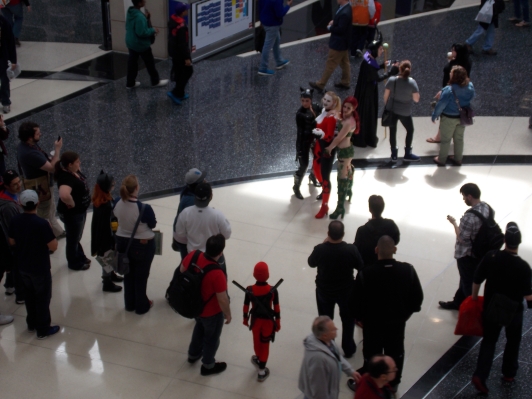
Do these explanations work? They are theories that could help us to understand what is happening and why, but they are only theories, in need of study and testing. And these could be theories that only work to explain this particular “-ism’s” impact in creating a fractured fandom. The fandom tensions between men and women could boil down to larger tensions of masculine and feminine, and of modern men and traditional hegemonic masculinity. While these theories could explain sexism in fandom, what of fractures due to racism or agism, or fractures that occur between different shippers, or between slashers and non-slashers?
I have some more ideas on those matters, but I would love to hear your ideas as well. I am also collecting stories of these problems fandoms are facing on Twitter with the hashtag #fracturedfandom.
I hope to hear from more people on this topic, because the only way we can truly get back to celebrating fandom is when these problems no longer hurt fans.
